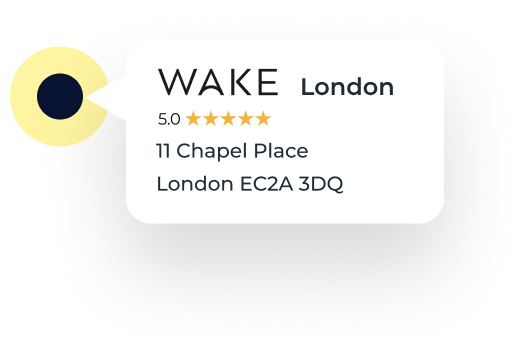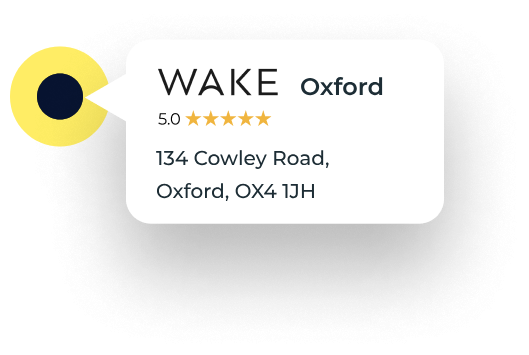The consensus in the food industry is that FMCG, or Fast Moving Consumer Goods, is the front line of retailing. Rather like the infantry, the FMCG’s are the lean, quick to market products that businesses can utilise to take advantage of trends, follow trends, or more and more, create trends. And perhaps most importantly, translate the trend into hard cash as quickly as possible.
Lucky and smart are the businesses that can turn a trend-setting product into a winner with an immeasurable life span, see Mars Bars, Walkers Crisps, Mini-Cheddars, and Hoola Hoops.
Until around 10 years ago FMCG was the domain of the big players like Coca Cola, Proctor & Gamble, and Unilever. But now even they’re facing challenges from smaller, more agile brands that are more in tune with their customers.
According to Phil Rumbol of Campaign Magazine :
“The past 10 years have seen some major changes in FMCG market dynamics and, as a result, the core competencies that used to define success have been undermined. Hitherto, a successful FMCG company formula would look like this:
- Mass-produce at high scale and low cost.
- Ongoing investment in above the line.
- Strong brand equity built up over decades to command a price premium.
- Strong leverage with major retailers.
- A large sales force to give good coverage and to sell to smaller retailers.
- The R&D muscle to maintain product superiority and launch new products
These acted as barriers to entry and made it difficult for others to challenge the status quo. But the context has changed. The traditional FMCG/retailer margin pool has come under pressure from rising costs, the waning power of bricks-and-mortar retailing and the rise of hard discounters.”
So spending big bucks on TV slots in Corrie, and sending out armies of highly trained shelf fillers to maintain those end of aisle supermarket slots don’t seem to cut it anymore.
So what’s happening?
The new kids on the block, the craft beers and niche snacks are doing something very different. They’re listening to their customers and agreeing with them about a whole host of imperatives like ethics, quality (ingredients), and personal stories and convictions. This all buys into the web-savvy, concerned customer being far more interested in ‘The Story’ than any 80’s marketing schmooze.
Key questions customers are asking now are:
- Where is the product from?
- How is it made?
- What are the ingredients
- Who makes it, and are they treated ethically?
- Is it produced in an ecologically sound fashion?
We’re ordering more and more exotic, nutritious, and unusual foods and snacks including Food Boxes, Diet Boxes (cook yourself, ready prepared), Pink Peppercorn Tortilla Chips, and, from M&S, Smoked Salmon Glitter Crisps.
And along came Amazon
Amazon has some history with FMCG having bought Whole Foods in 2017 in one of the biggest acquisitions the food sector has ever seen at £10 billion. Interestingly, Amazon’s increase in valuation after news broke pretty much paid for the acquisition.
They also dipped their toes in the water with Amazon Fresh. Although the project had a short shelf life (it’s morphed into a delivery-only service) they gained valuable sector experience.
And now Amazon is bringing to the table some very significant innovations that buy into current shopper trends.
Imagine this:
You’re sitting with the family, or your flatmate having breakfast, and you suddenly realise you’ve only got enough Bread for tomorrow, so you say
“Alexa, order a loaf of wholemeal bread, and a small Olive Oil, actually just order my normal weeks shopping for delivery tomorrow after 2.30 pm”
And it happens, yes, it actually happens that your shopping arrives at 3.17 pm the next day.
Knowing Amazon as we do, we’re not surprised this is happening; Alexa and Echo were only ever designed to enable customers to access Amazon stores. Yes, you get FREE music, and movies and, delivery but only if you subscribe to Prime, and for a very reasonable £7.99 a month or £79 a year, you’re buying the incredible convenience of sitting at home being waited on like royalty.
We hope the person at Amazon that came up with the notion of Alexa got a very, very big bonus because it’s a very, very smart idea.
Stop press:
There are rumours Amazon is in the hunt for ASDA, now the deal with Sainsbury’s has been vetoed by the Competition Commission.
Amazon just announced they are spending $800 million to turn Amazon Prime into a one-day delivery offering; the service currently promises two-day delivery.
And lastly, to touch briefly on snacks (we’ll be writing a snack specific piece at a later date).
The dilemma of getting snacks fast (and that’s what snacks are about), even with Prime, is it fast enough?
Our research shows two clear Amazon imperatives:
- When you search Amazon for ‘snacks’ first page results show 100% bulk packaging (that gets round the ‘fast’ thing because Amazon wants you to pre-order). It even shows Amazon will to try and change what’s most important about snacks: immediacy. But wait, bulk ordering enables even more immediacy, you no longer have to even go to a store because you’ve got a box of twenty in the cupboard.
- 90% of first page results show modern, craft type snacks (see above), which again buys into current trends (we think it’s more than a trend and is here to stay) of niche, ethically, and ecologically conscious products.
You can call it prescient, or you can call it very, very smart marketing that totally underpins the Amazon philosophy of `Customer First and Last’.
To quote a post from Kevin Baldacci on The Salesforce Blog:
“Even during the fledgeling days of Amazon, Bezos worked hard to establish the philosophy of a company that obsesses over their customers from top to bottom. An overwhelming figure that used to always set the tone of his meetings was ‘the empty chair’. Early on, Bezos brought an empty chair into meetings and informed his top executives that they should consider that seat occupied by their customer, ‘the most important person in the room’. Throughout these meetings, a different weight was held on all decisions as the invisible but clear presence of the customer was always accounted for”.





